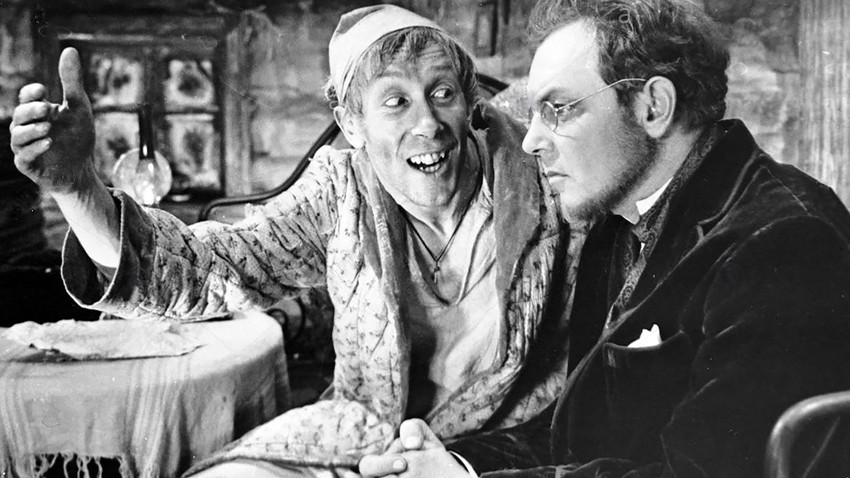
A still from "The Karamazov Brothers." Kirill Lavrov, right, as Ivan, and Valentin Nikulin as Smerdyakov.
Sputnik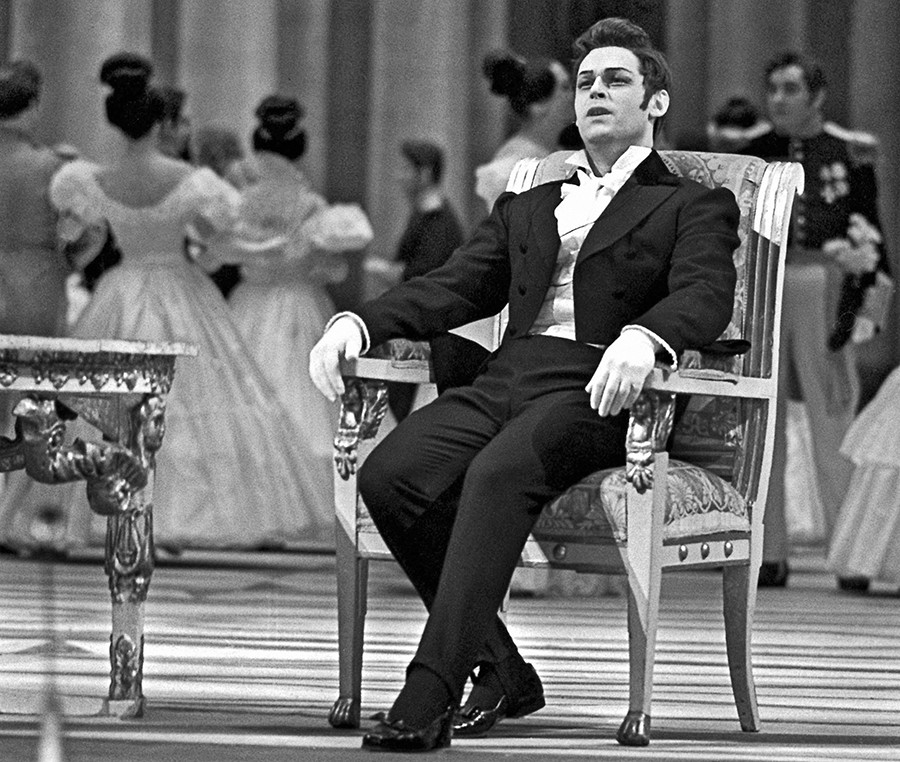
Yevgeny Kibkalo in the opera "Eugene Onegin" staged at the Bolshoi Theater
Alexandr Gladstein/SputnikEugene Onegin is considered the pearl in Pushkin’s vast heritage. The most influential Russian poet of the 19th century wrote this skillful masterpiece that fully portrays life in Russia at that time, and its eponymous hero embodies the
A bored nobleman who has never worked a single day leads an idle life full of pointless entertainment, mocks his best friend, pretends to make moves on his love (just for the fun of it), and then shoots him dead in a duel. What a jerk.
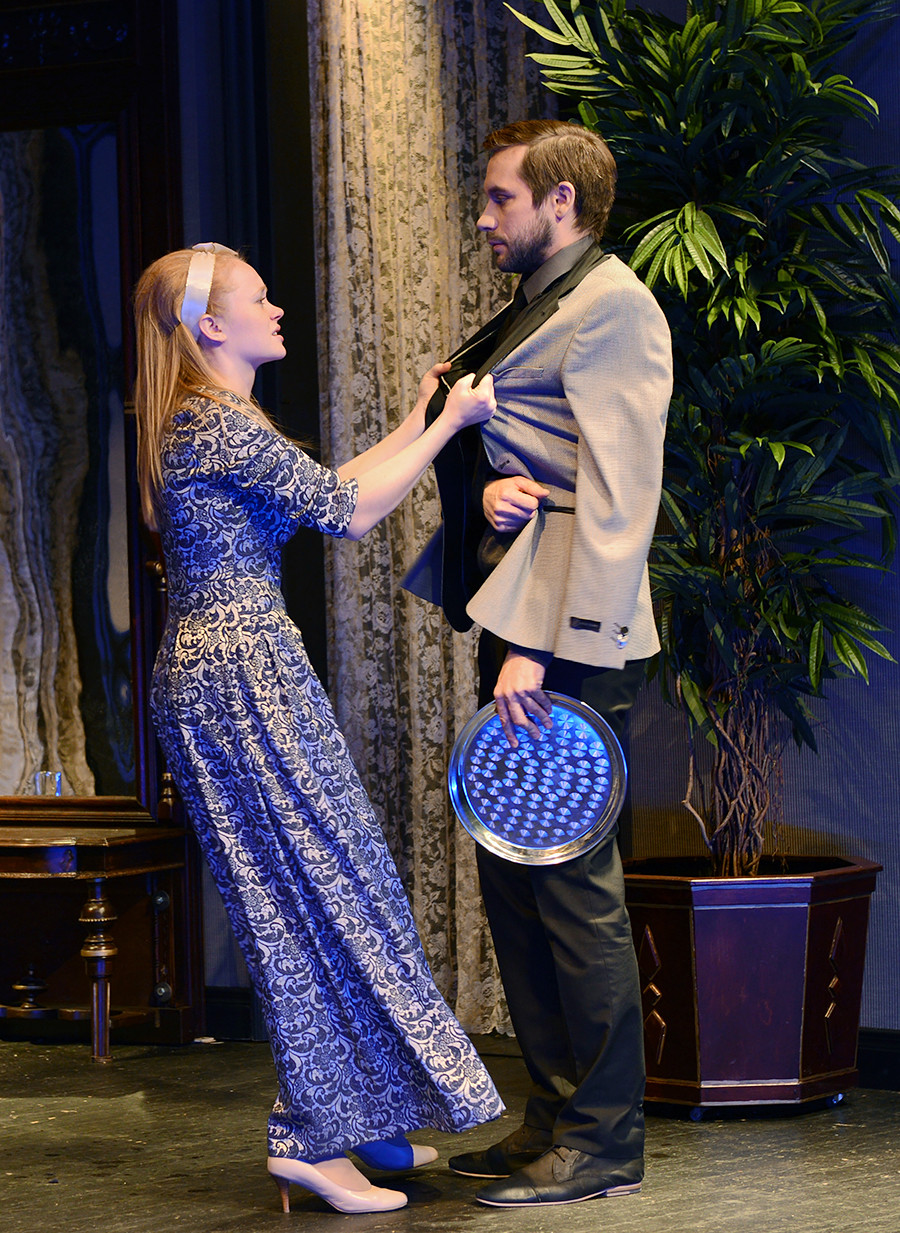
Alexandra Kuzenkina as Sofya and Vladimir Prokoshin as Molchalin in Alexander Griboyedov's play Woe from Wit staged at the Mossovet Theater in Moscow
Ekaterina Chesnokova/SputnikWoe from Wit is a successful play from 1825 that mocks the hypocrisy of the Russian aristocracy, where everyone obsesses over connections and influence, entirely forgetting about integrity and honesty.
Molchalin, whose name means “the silent one,” serves as secretary to an old nobleman and is ready to do anything to get a promotion – including faking romantic feelings for the daughter of his boss. His name is a synonym for a cunning and unprincipled careerist who is ready to kiss everyone’s backside if it will help him get ahead.
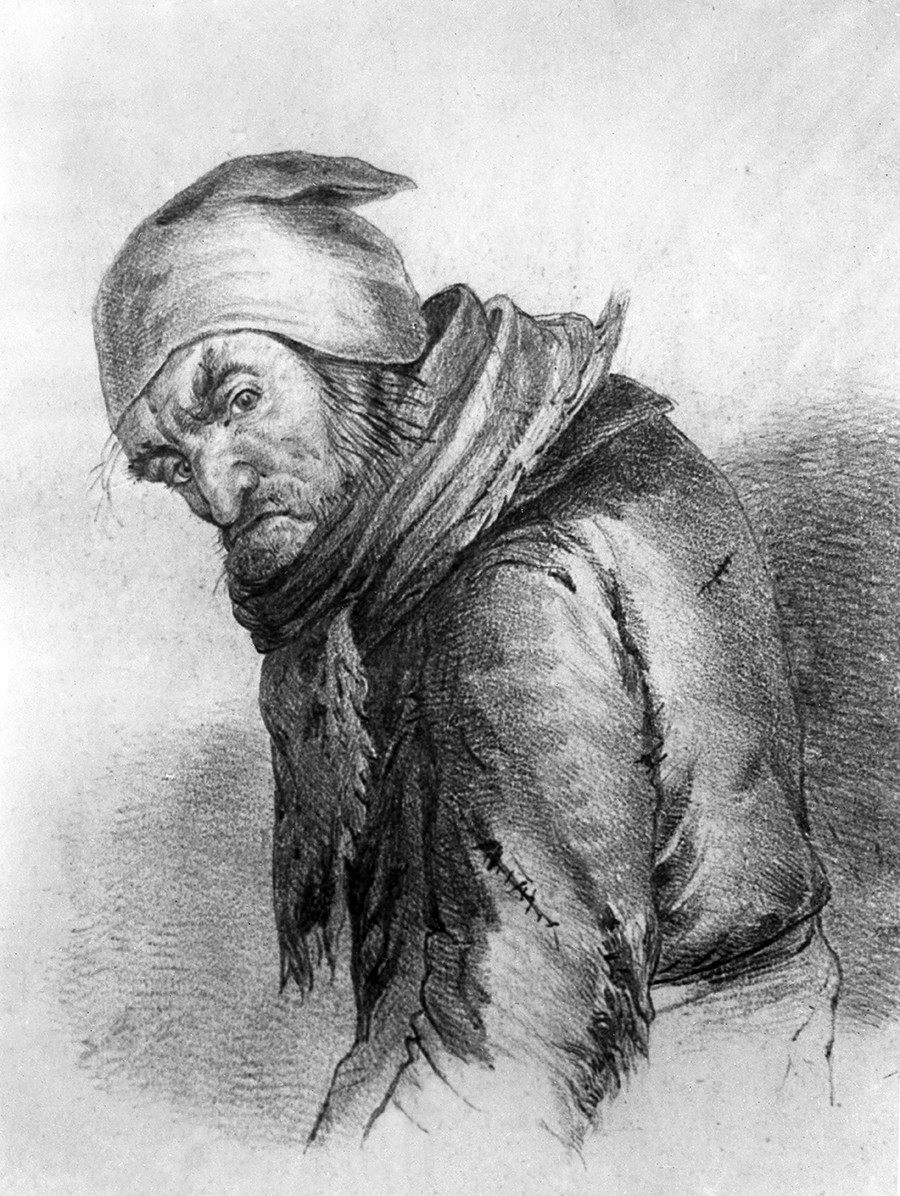
Plyushkin by artist P. V. Boklevsky
TASSIn Dead Souls the protagonist, Pavel Chichikov, travels across provincial Russia buying dead serfs from their owners (to perpetrate financial fraud
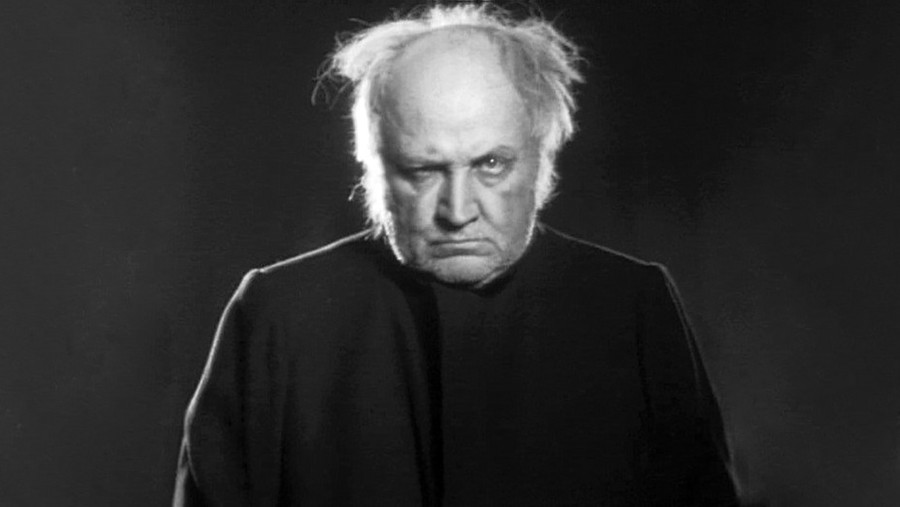
"House of Greed" movie based on "The Golovlyov Family," 1933
LensoyuzfilmAs you may have noticed,
Porfiry Golovlev, nicknamed “Little Judas,” seems to be the worst. Through deception and betrayal, he amasses all his family property in his hands, but in the
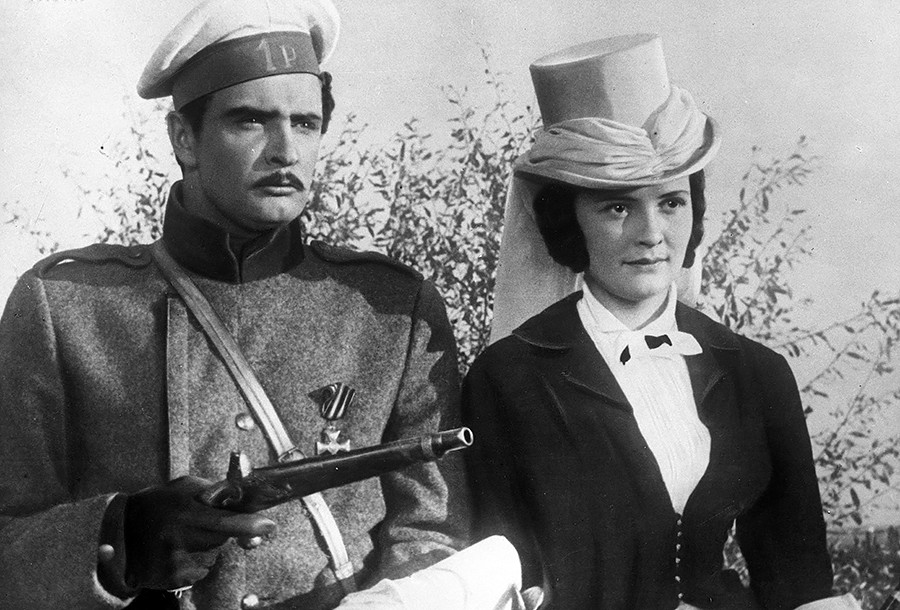
Leonid Gubanov as Grushnitsky and Karina Shmarinova as Princess Mary in a scene from the movie "Princess Mary" based on "A Hero of Our Time"
SputnikThe protagonist of Lermontov’s only novel, Grigory Pechorin, resembles Eugene Onegin (see above). He’s another tired-of-himself nobleman unable to feel anything, who ruins the lives of everyone else. Nevertheless, Pechorin understands his sinful nature and is a clever man.
But he has a doppelganger in the novel, the self-loving mediocrity, Grushnitsky. This officer has all of Pechorin’s vices without his talents, so he disgusts the readers even more. When Pechorin kills him in a duel it almost comes as a relief.

"The Storm" movie, 1933
SoyuzmultfilmWomen can also be villains, and playwright Aleksandr Ostrovsky proves it in The Storm, which was written in 1859. Marfa Kabanova is a widow who rules her family with an iron fist. Morose and often flaunting her Orthodoxy, Kabanova basically drives her daughter-in-law Katerina to suicide. Kabanova symbolizes the medieval, obscurantist and dark side of Russia that has annoyed progressive Russians for centuries.
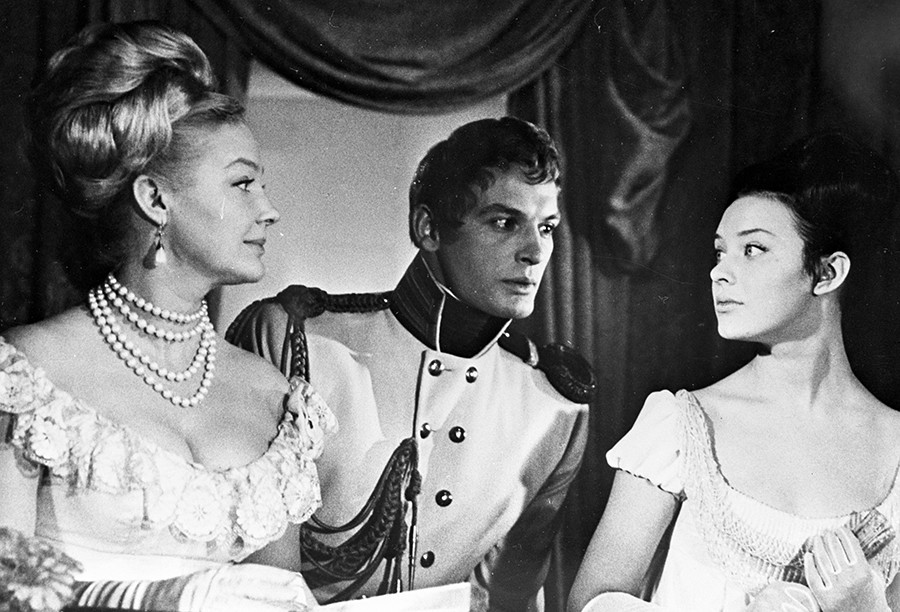
L-R: Actors playing Ellen Kuragin, Anatole Kuragin and Natasha Rostova in the film "War and Peace."
SputnikTolstoy’s monumental novel reflects the vices and virtues of his époque, and so the Kuragins are responsible for vices. The old Prince Vasily Kuragin, a cunning and arrogant plotter, does all he can to promote himself at court, including some rather dark schemes.
The children are even worse. Vasily’s son, Anatole, seduces the innocent Natasha Rostova despite being secretly married to a Polish woman. Anatole’s sister, Hélène, is a typical gold-digger who cheats on all her lovers and lawful husband. Plus, these two are rumored to have an incestuous affair. The Kuragins embodied everything that Tolstoy despised.
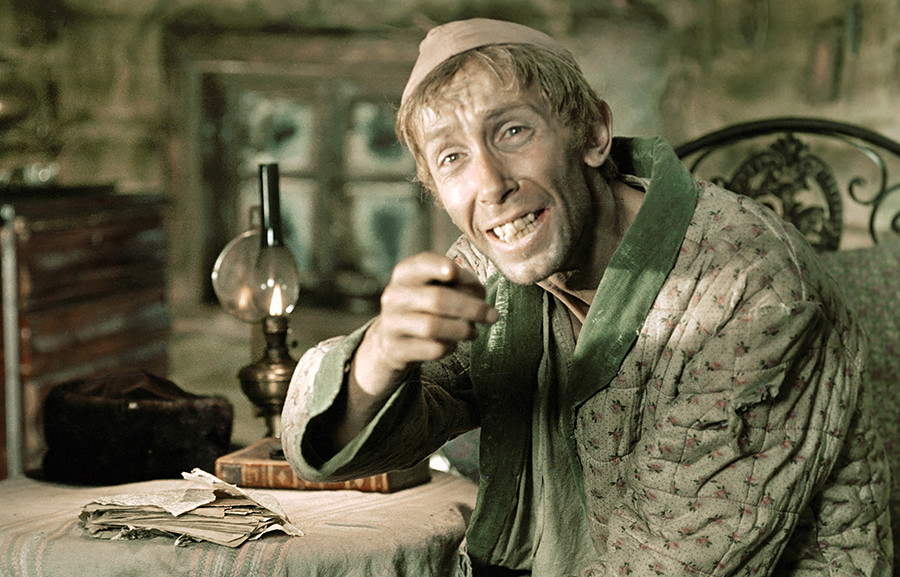
Valentin Nikulin as Smerdyakov in "The Brothers Karamazov" movie
SputnikWe could fill this list entirely with characters from Dostoevsky, who was great at portraying terrible human beings. Yet, Pavel Smerdyakov, the bastard son of old Fyodor Karamazov who served as a cook in his house, is probably the worst.
A natural-born hater, Smerdyakov detests everyone: his father, Russia, the world and himself. He claims that it would be nice to “flog Russian people.” A servant himself, he dreams of becoming a master and punishing everyone. Smerdyakov plots and executes the murder of his own father, and kills himself.
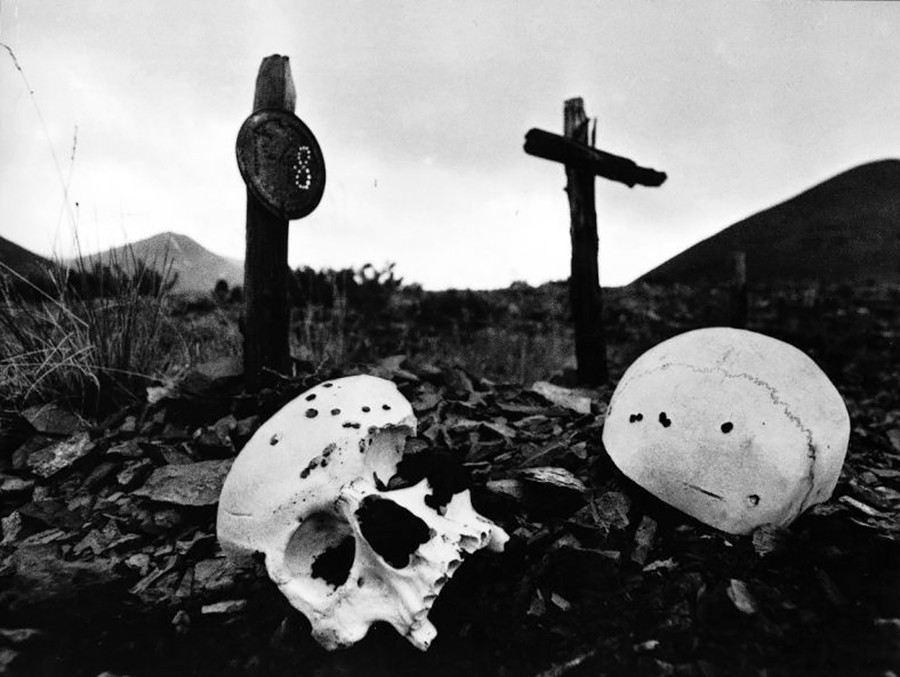
Kolyma Gulag cemetery
Dmitry Vyshemirsky/russiainphoto.ruIt’s a collective image – any guard working in Soviet labor camps, where Shalamov spent 14 years during the rule of Stalin. His prose is basically documental. Gathered in a collection of short stories entitled, The Kolyma Tales, Shalamov describes the awful existence of hungry, powerless prisoners and guards who sometimes kill inmates for no reason, just out of sheer senselessness. And Shalamov didn't make out a thing: such people actually existed and there was plenty of them.
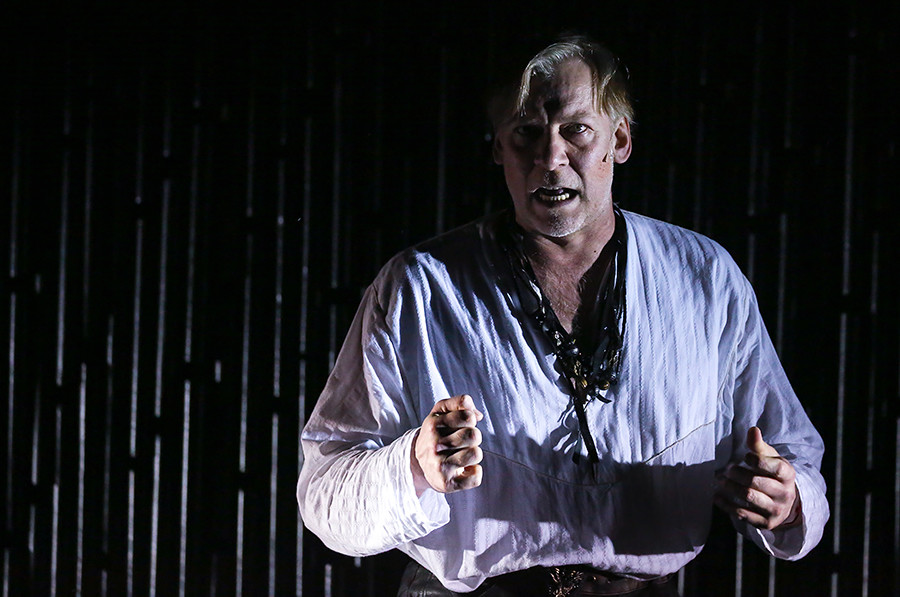
Actor Viktor Rakov as Komyaga in "Day of the Oprichnik" performance staged in Lenkom theater, Moscow
Artem Geodakyan/TASSThis novel combines satire and dystopia. The year is 2027 and Russia has become an ultra-Orthodox monarchy where the new
Which Russian character are you? Find out by taking our quiz.
If using any of Russia Beyond's content, partly or in full, always provide an active hyperlink to the original material.
Subscribe
to our newsletter!
Get the week's best stories straight to your inbox